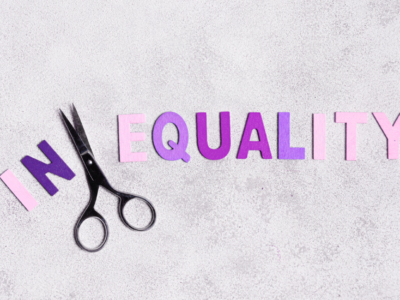Rippling round the world in a wave of controversy a few weeks back was a memo released by Google employee James Damore. The former search giant engineer posted a document titled, “Google’s Ideological Echo Chamber” to an internal discussion group, in which he outlined reasons as to why increasing gender representation within the organisation had gone wrong – and shouldn’t be a priority for the corporation.
The main crux of his argument was this: men and women have clear psychological differences due to their different biologies. These psychological differences therefore make them ‘differently suited’ to working for the tech company. He explains that, in his opinion, attempting to create a workforce with greater numbers of women in technical and engineering capacities cannot be achieved due to these underlying differences, and that doing so is damaging the company.
He then goes on to explain that anyone who tries to talk about this being an issue is silenced, which flies in the face of Google’s mission statement to value and appreciate difference wherever it lies.
Then, after the memo was leaked and did its rounds in the press, Damore was fired.
This was a decision courted by a great deal of the world’s mainstream media, and was met with a resounding applause by those working towards removing sexism from the workplace. However, since Damore was removed from his position there has been a whirling debate as to whether it was the right thing for Google to do.
On the surface it seems justified, however, peering under the rhetoric there may be a valid debate here.
No
Speaking to City AM, Elena Shalneva, communications consultant and office politics journalist for the paper, believes that it was absolutely not a sackable offence.
Her reasoning is that the memo didn’t claim that men were better engineers than women, or that the company should employ less female engineers. Instead she focuses on the neurological differences between men and women and suggests that Damore’s claim is true; women will tend to pursue different careers, and therefore it’s more likely that there are more men better suited to such jobs.
Does she feel that people can just say whatever they want?
No, Elena states that, “Not every point of view has a right to be expressed, and some opinions are indeed sackable. But do read the Google’s engineer’s memo. Semi-literate alt-right ranting it is not.”
She states that is it intelligently written and considered. Affirming that Google’s firing of their employee does indeed fly in the face of their ‘all-inclusive’ attitude. Instead, she suggests that the memo ought to have become part of a company wide discussion on the matter. And that firing someone for having an opinion different to the consensus on the matter is, indeed, problematic.
Yes
On the other side of the debate, Sophie Walker, leader of the Women’s Equality Party suggests that the memo’s reductive, sexist ideas are something that the WEP are all-too-familiar with; “They surface with predictable regularity whenever new data is published which proves – again – the scope and scale of gender inequalities of all kinds.”
She argues that the manifesto writer was buoyed by a comfort in his own superiority and privilege within a company that’s dominated by men. And that his insistence that biology is a woman’s destiny is not only egregious, but unfounded.
His dismissal, according to her opinion, is a step towards wiping out this “tired narrative” – and changing the “sad fact” that one in five jobs at Google is occupied by women.
————–
It sure is a sign that Google is taking its commitment to enhancing female visibility within the company extremely seriously. Although to parrot Elena’s point; is it a sackable offence. If firing someone for having such opinions becomes acceptable, where does it end?
[Tweet “Was Google Right to Fire Its Employee?”]
[subscribe2]








